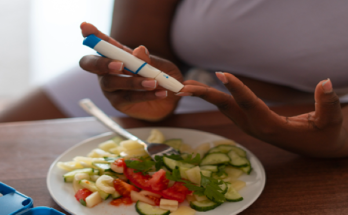Diabetes is no longer merely an adult disease; it is affecting children in growing numbers. While type 1 diabetes remains the most common form in young people, type 2 cases are rising as childhood obesity and inactive lifestyles increase.
Diabetes is no longer just an adult condition, and children are being diagnosed at growing rates; early recognition is vital. The sooner parents act on warning signs, the better the chances of preventing life-threatening complications.
What is Diabetes in Children?
Diabetes occurs when the body either does not produce enough insulin (type 1) or cannot use insulin effectively (type 2). Insulin is the hormone that regulates blood sugar levels. Without it, glucose builds up in the bloodstream, leading to serious complications over time. In children, diabetes can progress quickly and dramatically. Left untreated, it can result in diabetic ketoacidosis (DKA), a potentially fatal condition.
7 Warning Signs Parents Should Never Ignore
1. Excessive thirst and frequent urination
Children with diabetes often become unusually thirsty. The body tries to get rid of excess sugar through urine, leading to dehydration and constant trips to the bathroom, and even waking up at night.
2. Extreme hunger and weight loss
Despite eating more, a child may lose weight because their body cannot properly use sugar for energy. This is a red flag for type 1 diabetes.
3. Fatigue and irritability
When cells are deprived of glucose, energy levels plummet. Children may appear unusually tired, moody, or unable to concentrate at school.
4. Blurred vision
High blood sugar can cause swelling in the lenses of the eyes, leading to blurred vision. If a child suddenly struggles to see clearly, it may be linked to diabetes.
5. Slow-healing wounds and frequent infections
Cuts, bruises, or sores that take longer than usual to heal can indicate underlying issues with blood sugar regulation. Children with diabetes may also experience recurring skin or urinary tract infections.
6. Fruity-smelling breath
One of the more dangerous warning signs is a sweet, fruity odour on the breath. This is caused by the body breaking down fat for energy, producing ketones, a serious indication of diabetic ketoacidosis.
7. Unexplained nausea, vomiting, or abdominal pain
If a child suddenly develops stomach pain or vomiting without another clear cause, it may be linked to diabetes. This can also be a sign that blood sugar is dangerously high.
Why Early Detection Matters
Diabetes in children is manageable with the proper care, but delays in diagnosis can be life-threatening. Studies show that many children are only diagnosed when they arrive at the hospital in crisis, often already in diabetic ketoacidosis. Parents and caregivers should never dismiss these warning signs as “just a growth spurt” or “normal childhood behaviour”. If symptoms are present, a simple blood test can confirm whether diabetes is the cause.
Managing Childhood Diabetes
Once diagnosed, children with diabetes require careful management to maintain blood sugar levels within a safe range. This may include:
- Daily insulin injections or insulin pump therapy for type 1 diabetes.
- Healthy eating plans and weight management strategies.
- Regular physical activity can improve insulin sensitivity.
- Monitoring blood glucose levels at home.
- Ongoing medical support and education for both child and family.
The Rising Challenge of Type 2 Diabetes in Children
While type 1 diabetes is autoimmune in nature and cannot be prevented, the rise of type 2 diabetes in children is deeply linked to lifestyle, such as poor diets, sugary drinks, and physical inactivity, all of which are increasing. Childhood obesity in South Africa is particularly concerning, with nearly 13% of children under five already overweight (UNICEF).
Preventing type 2 diabetes in children requires a focus on healthier diets, increased physical activity, and limiting screen time. Schools and communities play an essential role in creating environments that encourage healthy choices.
On World Diabetes Day, let’s not overlook the health of our children. Spotting the warning signs of diabetes early can prevent life-threatening complications and ensure better long-term outcomes. Affinity Health supports families every step of the way through its Diabetes Management Programme, which provides access to trained case managers, treatment guidance, lifestyle support, and 24/7 telehealth GP consultations.




